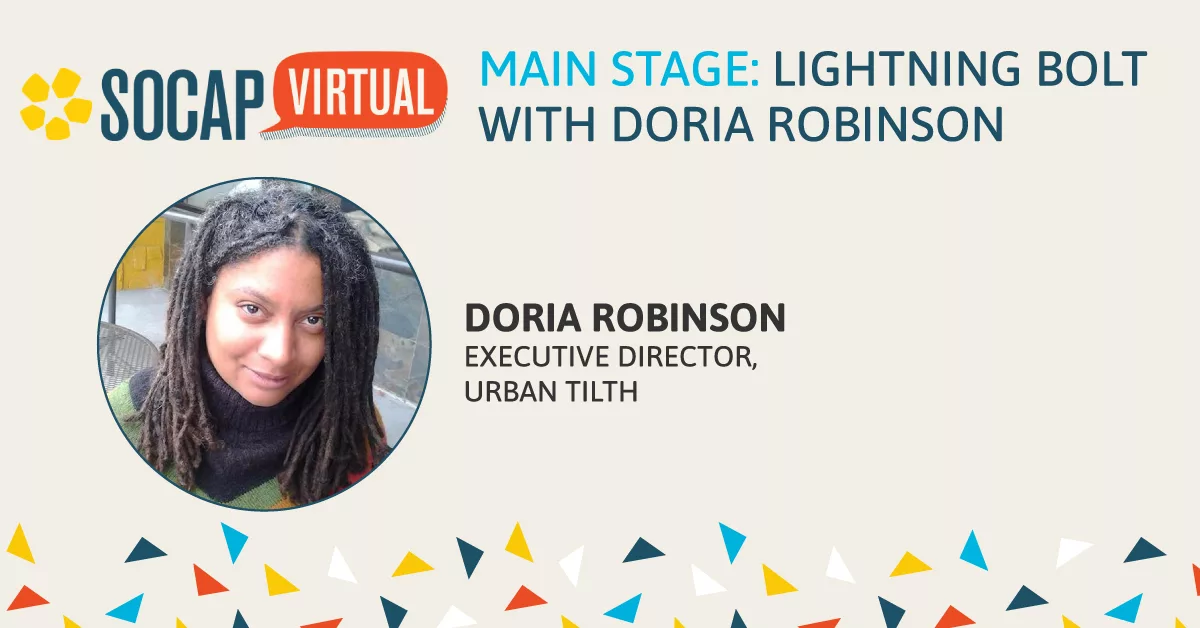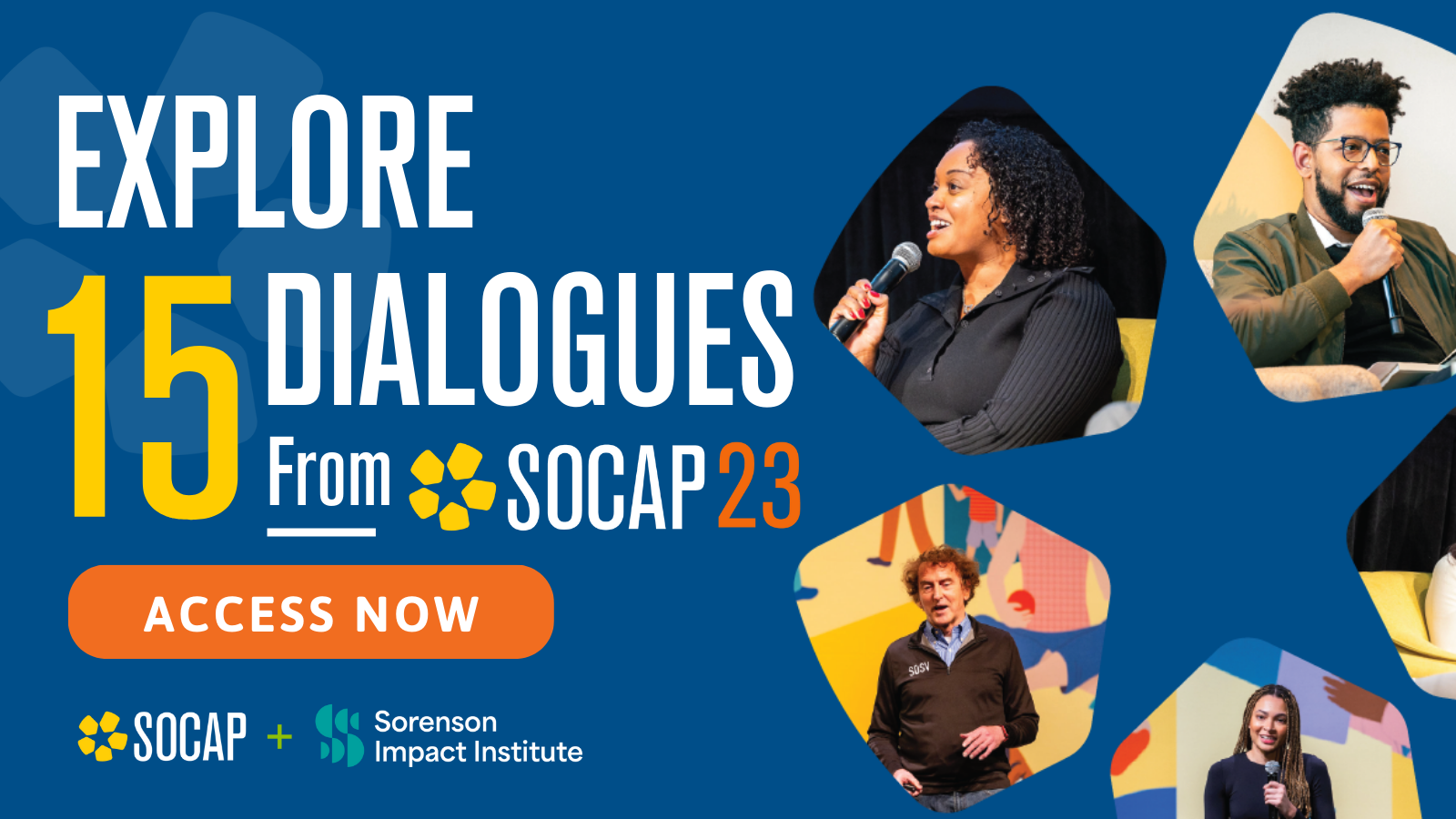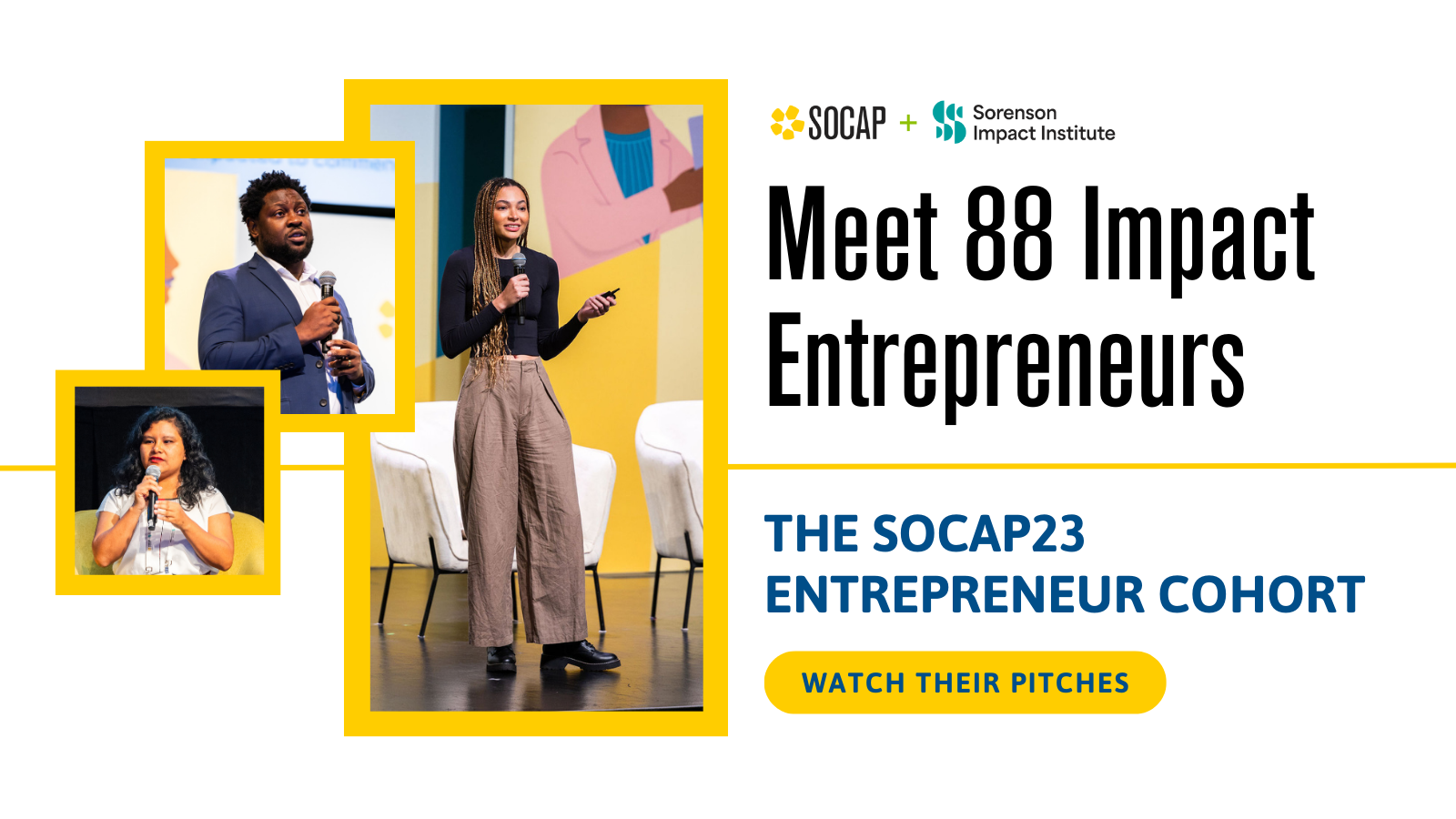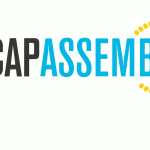A Community Leader Explains How to Usher in this Monumental Shift
Marginalized communities are too often the victims of an extractive economy. People with access to and ownership of capital take advantage of valuable resources and labor within these communities, leading to a lack of tangible, local ownership of assets and land that are foundational to strong communities. Doria Robinson, executive director of Urban Tilth, says that, while investors put money into these communities, it is rarely enough to make lasting change.
“We need significant and monumental investment in frontline communities who are ready to make this kind of transformative change,” Robinson says in a SOCAP Virtual Lightning Bolt Session. “We need support for acquisition of land and property. We can never achieve scalable transformation without the acquisition of assets. It’s just not possible. We need non-extractive finance for the launch and working capital to create self-sustaining enterprises run by and for people in need. Most importantly, we need investors to understand that, at this stage, the return on investment has to be the creation of healthy, just, sustainable communities.”
Urban Tilth is working to eliminate food deserts in western Contra Costa County, California, through local, regenerative agriculture. In her session, Robinson highlights that, while Urban Tilth is working in Contra Costa County, food deserts exist nationwide and exacerbate community deterioration. She adds that addressing food insecurity in marginalized communities improves community health and creates strong economic opportunities for local residents. Doing this work, however, requires investors to trust people on the frontlines of these communities and to look past profit maximization.
Watch Robinson’s full Lightning Bolt Session or read the transcript below.
Watch Soul, Soil, and Solutions with Doria Robinson
Doria Robinson: Hello, my name is Doria Robinson. I’m a third-generation Richmond, California, resident, and I started doing the work that I do with Urban Tilth in the neighborhood I grew up in. Put my hands in the soil, transforming dumped on, blighted, vacant lots into gardens with young people. But after 10 years of doing this work, at that scale, it became clearer that the approach that we were using would never be able to do more than put a band-aid on the root causes of the problems we are seeking to solve. The extractive economy and systemic oppression just aren’t going to be solved one garden at a time.
So why focus on economy? Economy is often a thing that people don’t want to deal with at all, especially when you have no money. You feel like it’s the source of all your problems. You want to push it away. You don’t realize that it’s actually malleable, and it’s open to our influence. And we actually have to proactively engage in that economy because economy is a management of home. So for over a hundred years, there’s been this visionary vacuum when it comes to the economy enrichment. We basically have depended upon the fossil fuel industry as our economic plan. And the residents here have really normalized the dysfunction of this economy, the lack of employment, the underemployment, the lack of affordable housing, the lack of pathways to ownership, crumbling public education, dwindling family wealth, and all of the subsequent consequences of all those things: mental illness and addiction and violence. We’ve normalized that and just kind of grown up in despair.
Like I grew up here just feeling like I was in an ongoing disaster. Like I was one of those people on the roofs of Katrina marooned, hoping to be saved. And I got to a point where I realized that we really just can’t wait to be saved any longer, and we have to come up with our own solutions, solutions that deal with things on an economy scale. So those of us who are tired of waiting in Richmond and in communities like Richmond across the United States have been envisioning and creating plans for what an alternative, just, and equitable economy would look like. And how we can transition to that economy that we just so desperately need. It is a lot of work in front of us, but it’s just so exciting to get into.
So Urban Tilth has been focusing on ending food deserts by transitioning a decade of gardening practice towards a new regionally local food system that connects resident-led urban farming and regional, local, sustainable BIPOC farmers and healthy food distribution systems run cooperatively by folks who were formerly excluded from the economy. So we’re actually going to create the thing that we need in order to solve our food desert problem. And we’ve also partnered with organizations like the Richmond Our Power Coalition, that collection of amazing organizations, to develop the capacity within Richmond to execute a comprehensive, just transition plan that addresses not only food systems but energy, housing, transportation, equitable business development, and criminal justice reform.
This work includes a container for outside investment in our Just Transition Fund, which is housed at the East Bay Community Foundation. Nationally, we’ve joined with the Seed Commons, another national container for transformative investment, so that we can move capital directly into our frontline communities to support cooperative business development. We also have joined with the Climate Justice Alliance as one of their many Our Power Communities across the nation who are creating just transition plans for our communities and setting up vehicles to accept investment.
But we have one major problem. As migrants, immigrants, refugees, many who have been raised in generational poverty, survived the violence, racism, environmental and economic injustice, systemic oppression that’s pervasive in the United States, we have little to no capital to invest in ourselves. Our communities need to scale up our solutions that we’re piloting, but we actually need help from outside entities to make that happen. We need people to actually give back the capital that was taken from us to make that happen. To be fair, communities like Richmond have seen some investment from philanthropy, but the philanthropic investments have largely come in the form of short-term, one or two-year grants, relatively small, $5,000 to $100,000. You have to constantly go back to try to keep programs going. There’s no way we can embark on a sustained transformation of the economy in a place like Richmond or any other place that’s like Richmond using one- to two- year $5,000 to $100,000 grants. That is funding just enough to fail. It just won’t work.
So how can we move beyond providing communities just enough capital to pilot a solution but not enough to scale them up so that they can actually build something that could sustain itself and sustain ourselves? How do we move beyond that? How do we stop fooling ourselves into believing that that’s ever going to do anything but just make us feel better in the moment? We need significant and monumental investment in frontline communities who are ready to make this kind of transformative change. We need support for acquisition of land and property. We can never achieve scalable transformation without the acquisition of assets. It’s just not possible. We need non-extractive finance for the launch and working capital to create self-sustaining enterprises run by and for people in need. Most importantly, we need investors to understand that, at this stage, the return on investment has to be the creation of healthy, just, sustainable communities. That has to be it for now. We also need investors who have the capacity to release control of their investment and believe in and support the wisdom of frontline communities to determine our own destinies.
In order to move our work at the scale of transformative change in Richmond and communities like Richmond, we need investment on the scale of $100 million in clusters, in networks, in coalitions like the Richmond Our Power Coalition and all of its related projects so that we can actually make that kind of transformative change that would bring land trusts; community-led affordable housing; radical support and shelter for programs for unhoused people; restored and revitalized downtown economic centers, where worker-owned cooperative businesses thrive; urban farms; food hubs; regional BIPOC farmer distribution networks; a new network of worker-owned cooperative corner-store conversion grocery stores serving food deserts; community solar projects; innovative youth entrepreneurial centers; cultural centers; and cooperative bank to support long-term home and business ownership and development.
For Urban Tilth, this means securing capital to build out our farm, food hub, learning center so that we can scale up our impact over the next two years and continue to be that beacon and anchor for transformative food system change enrichment in the west Contra Costa County. This is what it will really take to win. The frontline communities are ready for transformative change, and my question to everyone at SOCAP is, are you?






